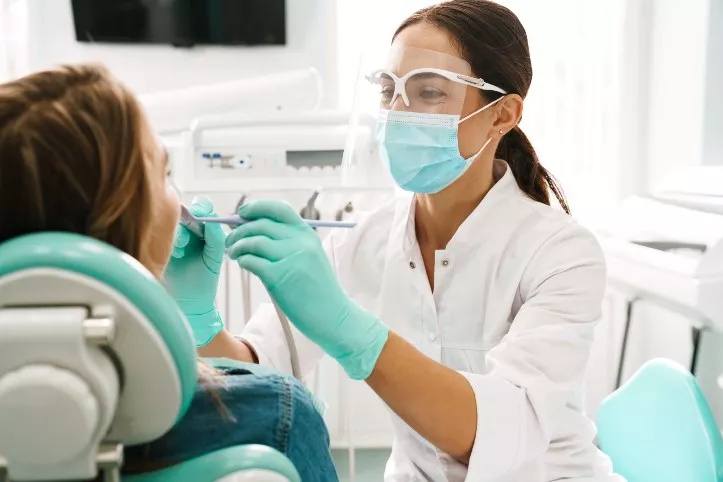
We’re shining the spotlight on a research project we’re co-funding with the National Institute for Health and Care Research (NIHR), looking at how dentist appointments could help to find people with or at risk of type 2 diabetes.
People living with diabetes can be at a higher risk of developing dental problems, like gum disease and tooth decay. So keeping on top of oral health is really important, and regular dentist appointments can play a part.
However around 850,000 people in the UK are thought to be living with type 2 diabetes without knowing, and a further 13.6 million people are at risk of developing it.
Diagnosing type 2 diabetes can be difficult, as symptoms might not be obvious in the early stages of the condition, or there may be no signs at all. As people tend to only see a doctor if they feel unwell, some people can live with type 2 diabetes for up to 10 years before being diagnosed.
In contrast, most people registered with a dentist see them on a regular basis, no matter if they’re feeling well or not. Dentists can check for signs of dental problems which are linked to type 2 diabetes, so issues picked up could be a useful tool to flag people who might be at risk or have undiagnosed type 2 diabetes, who could then get follow up checks from their GP.
Brushing up on dental research
In partnership with the NIHR, we’ve been co-funding research exploring how information from dentists could help to find people with or at risk of type 2 diabetes.
Dr Zehra Yonel at the University of Birmingham has been figuring out the best way to do this. She’s been studying what kind of oral health data is already available, and how it can be linked to signs of type 2 diabetes. She’s also been finding out how dental patients, GPs, and dental teams feel about having dental information used in this way, by setting up interviews and focus groups.
Opticians are already able to refer people to their GP if they spot signs of type 2 diabetes. So if dentists can harness information that’s already available from appointments, it could be another way to help diagnose people with type 2 diabetes earlier.
This means people can get the support and treatment they need sooner to manage the condition, which could help to reduce their risk of diabetes complications further down the line. An earlier diagnosis could also give people a better chance of putting their type 2 diabetes into remission.
Dr Yonel said:
"I’d like to thank Diabetes UK and the NIHR for their support funding this important research study. As part of this programme of work we have developed and validated an effective algorithm like the Diabetes UK Know Your Risk tool, which uses data routinely available to the dental team. It is also clear that there is broad support from patients to utilise the oral healthcare team to identify those at risk of diabetes.
"It is important to recognise and promote the importance of oral health, not just due to the impact of oral health on eating, speech, nutrition, and mental wellbeing, but now also due to the strong associations between oral health and the rest of the body."
Find out more about projects we’re funding here.
